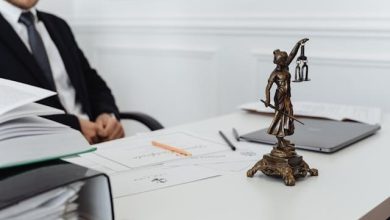Protecting Yourself After A Car Accident: Essential Steps And Legal Guidance

Key Takeaways
- Understand the immediate actions to take following a car accident
- Learn why reporting the accident and documenting everything is crucial
- Know the importance of seeking medical attention, even for minor injuries
- Be aware of your legal rights and the benefits of consulting a lawyer
- Get tips on how to prevent future accidents and enhance road safety
Table of Contents
- Immediate Actions To Take After An Accident
- The Importance Of Reporting The Accident
- Documenting Information At The Scene
- Seeking Medical Attention
- Legal Guidance And Your Rights
- Tips For Preventing Future Accidents
- Final Thoughts
Immediate Actions To Take After An Accident
When you are involved in a car accident, the following seconds and minutes are crucial. The first step is to ensure safety by moving to a safe location and checking on all parties’ well-being. If someone gets hurt, contact emergency services immediately. It is also wise to remain calm and collected, allowing you to make better decisions. Accidents can be alarming, but keeping a clear head will help you respond effectively. Next, consider your legal options. Consulting an auto accident injury attorney can help you comprehend your rights and get the needed help following an accident. Professional lawyers can assist you in understanding the legal complications involved in an accident, aiding in handling insurance claims and possible legal actions.
The Importance Of Reporting The Accident
Regardless of the accident’s severity, it’s essential to report the incident to the police. Having an official police report can be extremely helpful when working with insurance companies or legal matters. While there, provide honest and accurate information to the authorities. The police report is a formal event document and could be essential in establishing responsibility and accountability. According to CDC data on motor vehicle safety, timely reporting can contribute to broader safety measures and statistics. Reporting helps in collecting data that can be used to improve road safety practices and inform future regulations.
Documenting Information At The Scene
Maintaining a thorough record of the accident is crucial. Take photos of the scene, vehicle damages, license plates, and any visible injuries. Exchange contact and insurance information with the other party and gather contact details from any witnesses. Documentation serves as evidence that can be critical in insurance claims and legal cases. It also helps to write down your recollection of events as soon as possible, as memories can fade and details can be forgotten. In addition, keeping a diary of your physical and emotional state after the accident can be helpful. It can help provide a comprehensive picture of the accident’s impact on your life, which can be particularly important in personal injury cases.
Seeking Medical Attention
Although you may feel okay, specific injuries could go unnoticed at first. It is important to quickly seek medical attention for your health and create a medical history. This record can be vital if you develop symptoms later and must file a claim. Common injuries such as whiplash or internal bleeding may not manifest symptoms until hours or even days after the accident. You are a professional medical evaluation soon after the accident establishes an immediate connection between injuries and crashes. It can be essential to prove that your injuries directly resulted from the accident.
Legal Guidance And Your Rights
Understanding your legal rights post-accident can significantly influence the outcome of your case. Getting advice from a car accident lawyer can guarantee fair reimbursement for injuries and damages. Attorneys can help collect evidence, bargain with insurance companies, and act as your court representative if needed. A report by NHTSA highlights the importance of legal advice in navigating the complexities of car accident claims. Legal professionals can also help understand the statutes of limitations, which dictate how long you must file a claim after the accident.
Tips For Preventing Future Accidents
Preventing accidents is better than dealing with them after they occur. Drivers must always remain alert, adhere to traffic regulations, avoid distractions, and refrain from driving while intoxicated. Regular vehicle maintenance can also help prevent unexpected mechanical failures. Simple steps like checking tire pressure, testing brakes, and maintaining fluid levels can significantly affect vehicle performance and safety. Additionally, adopting defensive driving techniques can be a proactive way to avoid accidents. These techniques include being aware of other drivers’ behaviors, maintaining a safe distance from other vehicles, and being prepared to react safely to sudden road conditions or traffic changes.
Final Thoughts
Car accidents can be stressful and life-altering events. By knowing the steps to take immediately after an accident and understanding your legal rights, you can better protect yourself and others on the road. Safety and preparedness are keys to navigating the aftermath of an accident effectively. Remember that each action you take can significantly impact your health, legal standing, and financial well-being. Stay informed, stay safe, and seek professional advice when needed.




